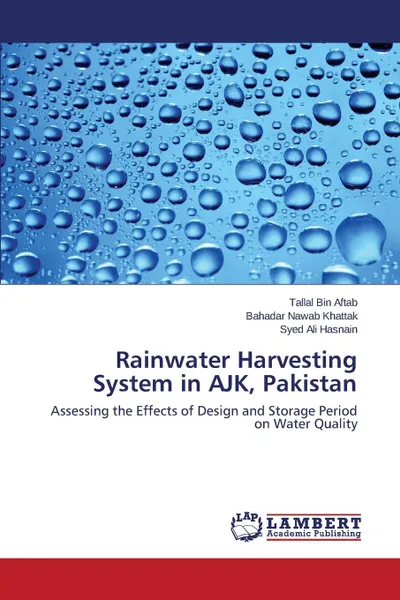Rainwater Harvesting System in AJK, Pakistan 14+
144 страницы
Категория: Учебная литература
ISBN: 9783846546499
Язык: Английский
📓 Fresh water resources especially ground water are getting scarce at a rapid pace in arid and semi-arid countries like Pakistan, due to drastically increased gap between renewable supply and demand. This study assesses the appropriateness of different aspects of rooftop rainwater harvesting system as an alternative of ground water installed at Chitra Topi, a mountainous area in district Bagh, where annual rainfall measures up to 1600mm. Various implementation modes of this practice, design and potential of RRWHS and finally assessment of the water quality of rainwater from households was carried out and analyzed throughout different periods. In village Chitra Topi, mostly women and children fetch few liters of water in small containers from distant springs to meet all domestic needs every day. Based on results, it is concluded that rainwater harvesting systems were shown to be a relatively low cost option for improving a households' geographical and temporal access to a water source, increasing convenience and decreasing collection times.
Мнения
